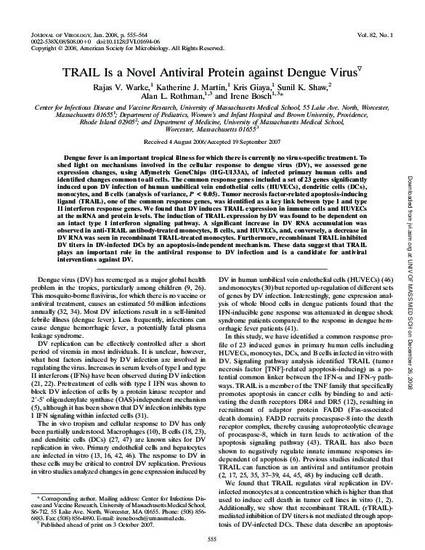
Dengue fever is an important tropical illness for which there is currently no virus-specific treatment. To shed light on mechanisms involved in the cellular response to dengue virus (DV), we assessed gene expression changes, using Affymetrix GeneChips (HG-U133A), of infected primary human cells and identified changes common to all cells. The common response genes included a set of 23 genes significantly induced upon DV infection of human umbilical vein endothelial cells (HUVECs), dendritic cells (DCs), monocytes, and B cells (analysis of variance, P < 0.05). Tumor necrosis factor-related apoptosis-inducing ligand (TRAIL), one of the common response genes, was identified as a key link between type I and type II interferon response genes. We found that DV induces TRAIL expression in immune cells and HUVECs at the mRNA and protein levels. The induction of TRAIL expression by DV was found to be dependent on an intact type I interferon signaling pathway. A significant increase in DV RNA accumulation was observed in anti-TRAIL antibody-treated monocytes, B cells, and HUVECs, and, conversely, a decrease in DV RNA was seen in recombinant TRAIL-treated monocytes. Furthermore, recombinant TRAIL inhibited DV titers in DV-infected DCs by an apoptosis-independent mechanism. These data suggest that TRAIL plays an important role in the antiviral response to DV infection and is a candidate for antiviral interventions against DV.
Available at: http://works.bepress.com/alan_rothman/9/